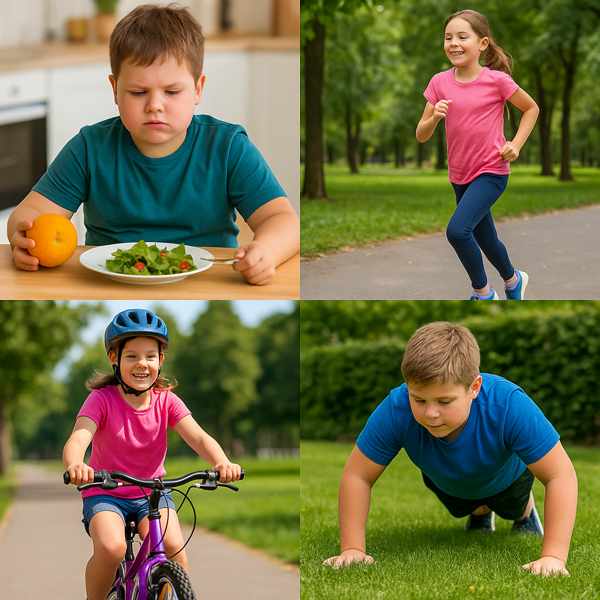Smart and Safe Weight Loss Strategies for Children
Smart and Safe Weight Loss Strategies for Children
Blog Article

As childhood obesity continues to rise, weight loss for kids has become a major concern for parents and healthcare professionals alike.
But losing weight as a child isn’t about strict diets or intense workouts—it's about creating balance that encourage growth.
Understanding Childhood Weight Management
Excess weight in children can lead to medical complications such as:
- Often preventable with diet and activity changes
- Previously seen only in adults
- Affects daily activities and development
- Can impact academic and emotional health
Early intervention helps kids grow into healthier, happier adults.
How to Approach Weight Loss for Kids
Weight loss for kids should focus on support, not punishment.
Tips include:
- Let them play, run, or ride bikes daily
- Limit sugary drinks and processed foods
- Make changes as a family
- Celebrate progress and effort
Healthy Eating Made Simple
Great options include:
- Fruits and vegetables in fun shapes
- Whole grains like oats and brown rice
- Lean proteins like eggs, chicken, or beans
- Better than chips and sweets
Avoid using food as a reward or punishment—this can create unhealthy emotional patterns.
Fun Ways to Move Every Day
Recommended activities:
- Dancing to music or doing YouTube workouts
- Playing sports or swimming
- Turn movement into bonding time
- Builds healthier habits naturally
The goal is to make movement fun, not a chore.
What Parents Can Do
Parents can help by:
- Eat well and move with them
- Use positive language about bodies and health
- Being consistent, not perfect
- Emphasize feeling good and being strong
Children mirror adult click here behaviors—so lead by example.
Getting Extra Support
Consult a pediatrician or dietitian if:
- Your child gains weight rapidly
- Emotional support is critical
- You're unsure how to help safely
Working with professionals ensures your child receives age-appropriate support.
Final Thoughts
Weight loss for kids isn’t about quick fixes, but about teaching them to eat well, stay active, and love their bodies.
Start small, stay positive, and remember—your encouragement makes all the difference. Report this page